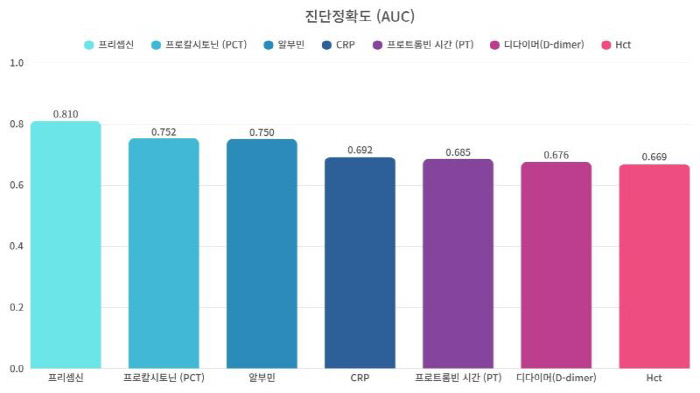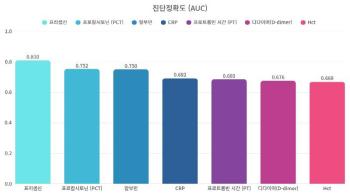Early diagnosis of sepsis in burn patients and proof of the possibility of minimizing antibiotics
Nov 12, 2025
|
The joint research team, including Professor Kim Do-heon (corresponding author), Professor Park Sun-tae (first author), Director of Hospital Heo Jun, Professor Yoon Jae-cheol, Professor Cho Yong-seok, and the Burn Research Institute of Hallym University's Han River Sacred Heart Hospital, demonstrated that preceptin is useful for early diagnosis of sepsis in burn-related sepsis and its effect on early antibiotic reduction (Diagnostic Accuracy of Pressepsin and Its Impact on Early Antibiotic De-Escaling in Burn-Related Sepsis)' through a study.
Preceptin is a protein fragment that shows the body's initial immune response to infection. When pathogens such as bacteria enter the body, immune cells are activated and secreted, and elevated preceptin levels in the blood mean that the immune system is working against infections such as sepsis.
The 'blood culture test', which is used as a standard diagnostic method for sepsis, took an average of 3 to 4 days to produce results and could take up to 5 days or more depending on the type of pathogen, making it difficult to diagnose sepsis early. In particular, there were many 'negative sepsis' where bacteria were not detected when antibiotics were pre-administered to suspected sepsis patients, so there was a limit to accurate judgment.
The research team simultaneously measured and analyzed 7 biomarkers that could be confirmed by blood tests on 221 severely burned patients admitted to the burn intensive care unit of Hallym University Kang Sungsim Hospital from January 2021 to December 2022.
A total of seven biomarkers were measured, including ▲ protein fragments in the blood 'preceptin' ▲ thyroid hormone progenitor 'procalcitonin (PCT)' ▲acute response protein 'CRP' ▲' reflecting nutritional status and severity 'albumin' ▲ blood clotting time indicator 'prothrombin time (PT)' ▲'Hct' ▲'thrombocyte ratio level in the blood 'Dimer'.
As a result, the diagnostic accuracy (AUC) of preceptin was the highest at 0.810 (0 to 1, the higher the accuracy). This means that early diagnosis of sepsis is possible only with blood tests instead of blood culture tests that take a long time.
In particular, even in the negative sepsis patient group, where bacteria were not detected in the blood culture test, the diagnosis accuracy was 0.846, showing higher performance of preceptin than other substances. This is a significantly better result than the second and third highest procalcitonin (0.752) and CRP (0.692).
Professor Kim Do-heon explained, "Preceptin is advantageous for early diagnosis of sepsis because the level of sepsis begins to rise within an hour of infection in the blood of burn patients, reaches its highest level within three hours, and the half-life is short to four to five hours. In particular, administration of prophylactic antibiotics allows accurate diagnosis even if the blood culture test is false negative (fake negative), which can be an important indicator for early detection of sepsis in burn patients."
This study is also significant in terms of antibiotic minimization strategies. It has been confirmed that the use of unnecessary antibiotics can be reduced or stopped early if the preceptin level is below the baseline (472 pg/mL) and the risk of sepsis can be reduced.
"This study provides a new basis for a faster and more accurate diagnosis of sepsis in burn patients. We plan to take the lead in patient-specific treatment and antibiotic management by applying the diagnostic protocol using presceptin to actual clinical sites in the future," said Heo Jun, head of the hospital.
The findings were recently published in the SCIE-level international journal 『Antibiotics』.
|
This article was translated by Naver AI translator.















